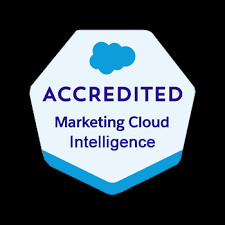The rapid pace of digital transformation has made scalability essential for any business looking to remain competitive. The stakes are high—without the ability to scale, businesses risk falling behind as customer demands and market conditions shift. So, what does it take to build a scalable business that can grow without compromising performance or customer satisfaction?
In this Tectonic insight, we’ll cover key steps to future-proof your operations, avoid common pitfalls, and ensure your business doesn’t just keep pace with the market, but leads it.
Master Scalability with Scale Center
Scalability doesn’t have to be overwhelming. Salesforce’s Scale Center, available on Trailhead, provides a comprehensive learning path to help you optimize your scalability strategy.
Why Scalability Is a Must-Have
Scalability is critical to long-term success. As your business grows, so will the demands on your applications, infrastructure, and resources. If your systems aren’t prepared, you risk performance issues, outages, lost revenue, and dissatisfied customers.
Unexpected spikes in demand—from increased customer activity or internal changes like onboarding large numbers of employees—can push systems to their limits, leading to overloads or downtime. A strong scalability plan helps prevent these issues.
Here are three best practices to help scale your operations smoothly and sustainably.
1. Prioritize Proactive Scale Testing
Scale testing should be a key part of your application lifecycle. Many businesses wait until performance issues arise before addressing them, which can result in maintenance headaches, poor user experiences, and challenges in supporting growth.
Proactive steps to take:
- Simulate peak loads: Test how your applications handle peak traffic to identify bottlenecks and optimize performance before going live.
- Track key performance metrics: Monitor response times, resource usage, and user load during testing to make data-driven improvements.
- Integrate with DevOps: Automate scale testing by embedding it into your DevOps practices, saving time and ensuring your applications are always ready to scale.
2. Use the Right Tools for Seamless Scalability
Choosing the right technology is crucial when scaling your business. Equip your team with tools that support growth management, and follow these tips for success:
- Test for peak loads: Tools like Salesforce’s Scale Test let you test your Full Sandbox on Hyperforce under peak production conditions, helping you identify issues before they affect your customers.
- Monitor in real-time: Performance monitoring tools help you catch potential issues early, reducing downtime and improving customer satisfaction.
- Automate performance checks: AI-driven tools like ApexGuru can automatically detect performance issues in your code, providing actionable insights to ensure efficiency.
By integrating the right tools and technologies, you’ll not only stay ahead of the curve but also build a culture ready to scale.
3. Focus on Sustainable Growth Strategies
Scaling requires a long-term approach. From development to deployment, a strategy that emphasizes scalability from the outset can help you avoid costly fixes down the road.
Key practices include:
- Invest in employee training: Keep your team up to date with the latest scalability practices through regular workshops and resources.
- Cultivate a feedback culture: Encourage open communication between teams and stakeholders to continuously improve scalability strategies.
- Regular evaluations: Frequently assess your scalability efforts to ensure they remain effective as your business evolves.
DevOps Done Right
Building secure, scalable AI applications and agents requires bridging the gap between tools and skills. Focus on crafting a thoughtful DevOps strategy that supports scalability.
Scalability: A Marathon, Not a Sprint
Scaling effectively is an ongoing process. Customer needs and market conditions will continue to change, so your strategies should evolve as well. Scalability is about more than just handling increased demand—it’s about ensuring stability and performance across the board.
Consider these steps to enhance your approach:
- Conduct regular customer reviews: Connect with Customer Advisory Boards to gain insights and refine your scalability strategies.
- Engage with Trailblazer communities: Encourage your team to share experiences and solutions with peers in similar industries.
- Set up a feedback loop: Create systems where user feedback drives continuous product improvements, keeping your business responsive to changing needs.
Committing to Scalability
Scalability isn’t a one-time achievement—it’s a continuous commitment to growing smarter and stronger across all areas of your business. By embedding best practices into your day-to-day operations, you’ll ensure that your systems meet demand and prepare your business for future breakthroughs.
As you develop your scalability strategy, remember that customer experience and trust should always guide your decisions. Tackling scalability proactively ensures your business can thrive no matter how market conditions change. It’s more than just a bonus feature—it’s a critical element of a smoother user experience, reduced costs, and the flexibility to pivot when necessary.
By embracing these strategies, you’ll not only avoid potential challenges but also build lasting trust with your customers. In a world where loyalty is earned through exceptional experiences, a strong scalability plan is your key to long-term success.













